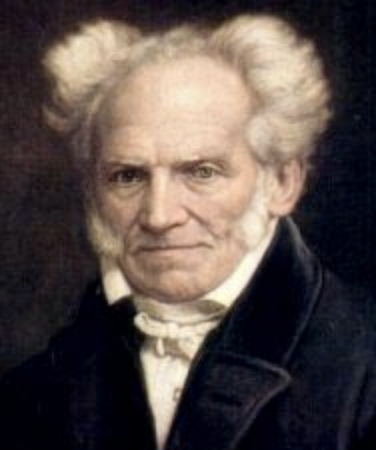On this date in 1788, Arthur Schopenhauer was born in Danzig (present-day Gdańsk, Poland) to patrician parents of Dutch-German heritage who were political liberals and not very religious. When Danzig became part of Prussia in 1793, the family moved to Hamburg, Germany, a free city with a republican constitution. Schopenhauer studied philosophy at Gottingen, Berlin and Jena universities. His opus, The World as Will and Idea, was published in 1818 and revised in 1844.
Parerga and Paralipomena (Greek for Appendices and Omissions, 1851), was his final major work and contained his popular writings, aphorisms and essays. Schopenhauer was influenced by Kant and rejected the ideas of Hegel and proofs for the existence of God and immortality. He was also influenced by Buddhism. Although a loner and pessimist, he advocated the alleviation of suffering through an appreciation of aesthetics, altruism and asceticism. He died of respiratory failure at home at age 72 in 1860.


